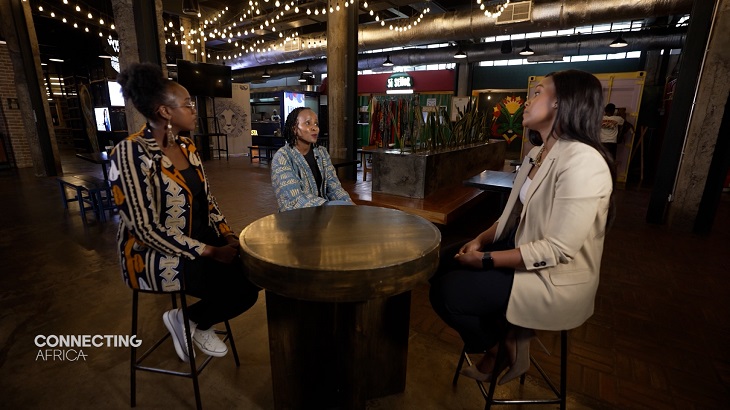According to a 2020 report by IFC and Google, Africa’s digital economy could be worth $180 billion by 2025. Connecting Africa looks at the initiatives and strategies e-commerce companies are taking to connect African consumers with online products and learns what needs to be done to increase online access, seamlessly deliver purchased goods, and expand product offerings across the continent.
CNN’s Victoria Rubadiri recently visited local business owners, Jennifer Nyambogo and Pauline Kariuki to explore how local artisans are shifting their businesses online.
Due to the Covid-19 lockdowns, in-person shopping in Kenya came to an abrupt stop. Mawu Africa Co-Founder and CEO, Jennifer Nyambogo explains her response to this obstacle, “We felt there was a need to do something immediately and figure out how to ensure that they’re making the art and they’re also spending a way to sell the art so they can keep making it.”
Alongside fellow co-founder and CTO, Pauline Kariuki, the pair officially launched their online marketplace in 2021. Nyambogo describes their company’s growth since then, “We currently work with over a thousand artisans, mainly in East Africa, Kenya being the largest one. But we also have artisans from Uganda, Tanzania, and DRC.”
Offering another pathway to Africa’s digital economy is helping brands better market their products and boost sales. The founder of Kitu Kali, Kushil Lakhani, says “I think it’s helped us with that recognition. And Mawu in general connects us with wholesale clients who buy in bulk and even getting orders through their platform online.”
Kariuki explains how, as more companies flood the digital ecosystem, Mawu Africa is set apart from other competitors, “We’ve learned with time and is that what matters, how you understand your customer, it’s how you solve the needs for the customer. And that’s what we make the customer buy and come back.”
She continues, “What sets apart is we do have a key focus just on crafts, and only crafts made within the continent. And also pushing the idea of consuming sustainable products, products that are handmade and products that are coming from the continent.”
For Kariuki, the future of Mawu Africa is to “Find different avenues in which we can able to expand economic opportunities for these artisans for them to keep producing their craft. And the effect of that is we get to preserve our culture and above that it’s to put Africa on the map.”
Related Content: Kenyan Businesses Resume Hiring After Months Of Stagnation

